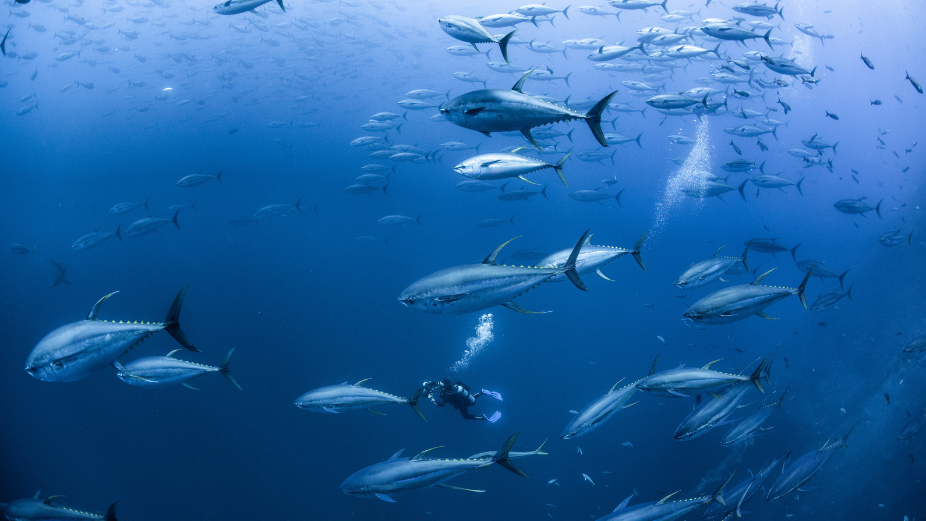
The Maldives heavily depends on its fisheries sector, which plays a critical role in the nation’s economy and livelihoods. As a primary source of employment, food, and foreign exchange earnings, the fisheries industry contributes significantly to the Maldives’ GDP. However, this crucial sector is increasingly vulnerable to the adverse effects of climate change. Changes in ocean temperatures, fish migration patterns, and extreme weather events, such as those associated with El Niño phenomena, pose significant threats to the sustainability of Maldivian fisheries.
Climate Change and Ocean Temperatures
Rising ocean temperatures due to climate change have far-reaching consequences for the Maldives’ fisheries. As global temperatures increase, sea surface temperatures in the Indian Ocean also rise, leading to the degradation of coral reefs, which are essential habitats for many fish species. Coral bleaching, driven by elevated water temperatures, disrupts marine ecosystems, leading to the loss of biodiversity. For the Maldives, where the fishing industry relies heavily on tuna, particularly skipjack and yellowfin tuna, changes in ocean temperatures can significantly affect the availability of bait fish which is crucial for the tuna fishery. Bait fish which are found in shallow reefs are heavily affected due to rising temperatures, coral bleaching and reef degradation caused by a changing climate.
Climate change impacts are pushing tuna stocks away from traditional fishing grounds near the Maldives’ atolls, forcing fishermen to venture farther into the ocean to maintain their catches. This shift not only increases operational costs due to longer trips and higher fuel consumption but also reduces the availability of fish for local consumption and export. Consequently, the economic sustainability of small-scale fishers, who constitute a large portion of the industry, is jeopardised, impacting income levels and local economies dependent on fishing.
Fishermen across the country have been reporting changes to local ecosystems and biodiversity that directly affect their ability to catch fish. Fishermen report a decline in seabirds that help fishermen locate fish schools. They also report difficulty in predicting traditional monsoon patterns, ocean currents and behaviour of marine life which are all affected due to climate change.
Changing Fish Migration Patterns
Climate change also affects fish migration patterns, a phenomenon that further complicates the Maldives’ fisheries sector. Ocean warming and changes in salinity disrupt the migratory routes of tuna and other commercially important species. Scientific studies suggest that tuna populations in the Indian Ocean are likely to migrate towards the cooler waters of the central and eastern parts of the ocean basin. As a result, the Maldives may experience a decline in the abundance of tuna in its exclusive economic zone (EEZ), leading to a reduction in catch volumes and potential revenue loss.
Changes in migration patterns also affect fish spawning and recruitment rates, making it more challenging to predict fish availability. The Maldives’ fisheries management strategies, traditionally based on historical data and patterns, need to adapt to these new realities, incorporating more dynamic, real-time data on fish stocks. The unpredictability of fish stocks could undermine the country’s ability to sustainably manage its fisheries resources, posing a threat to the long-term viability of the sector.
Extreme Weather Events and El Niño Phenomenon
The Maldives is increasingly experiencing extreme weather events such as heavy rainfall, strong winds, and sea-level rise, which are linked to climate change. Such events can disrupt fishing operations, damage infrastructure, and reduce the safety of fishermen at sea. The El Niño phenomenon, a climate pattern characterized by the warming of surface waters in the central and eastern tropical Pacific Ocean, has a particularly significant impact on the Maldives. El Niño years are associated with warmer sea temperatures, reduced rainfall, and changes in ocean currents in the Indian Ocean, which can have severe consequences for fisheries. During El Niño years, fish stocks, particularly skipjack tuna, tend to migrate away from Maldivian waters to areas with more favorable conditions. This migration results in a decrease in fish catch volumes, directly affecting the income of fishers and related industries. The Maldivian economy, which relies heavily on fish exports, especially to Europe and Asia, may face reduced foreign exchange earnings during these periods, putting additional pressure on the balance of payments and economic stability.
Economic Impact on Livelihoods
The economic impacts of climate change on the Maldives’ fisheries sector have direct implications for the livelihoods of the Maldivian people. The fisheries industry is a major source of employment, especially in rural and remote islands, where fishing is one of the main occupations. As fish stocks decline or shift due to climate change, the economic vulnerability of fishing communities increases. Loss of income, coupled with the rising cost of fishing operations, can lead to increased poverty and reduced access to basic services such as healthcare and education. Furthermore, the decline in fish catches and the potential collapse of the fishing sector could have ripple effects across the Maldivian economy. The country’s fish processing industry may also suffer, leading to job losses and reduced economic activity. Reduced fish availability could also impact food security, as fish is a staple in the Maldivian diet, leading to increased dependence on imported food and higher costs of living.
Adaptation and Mitigation Strategies
To address the economic impacts of climate change on the fisheries sector, the Maldives needs to implement effective adaptation and mitigation strategies. Strengthening fisheries management by incorporating climate-resilient policies, adaptive management approaches, and real-time monitoring systems can help mitigate the adverse impacts of climate change on fish stocks. Investing in sustainable fishing practices, such as pole-and-line fishing, which is less damaging to marine ecosystems and supports the Maldives’ ‘one-by-one’ fishing tradition, can ensure the long-term sustainability of the sector. Encouraging diversification of income sources in fishing communities, such as aquaculture and eco-tourism, can reduce economic vulnerability and provide alternative employment opportunities. Engaging in regional and international cooperation to address shared challenges, such as migratory fish stock management and climate change mitigation, is essential for the Maldives to secure its fisheries sector’s future. Additionally, enhancing infrastructure to withstand extreme weather events and investing in early warning systems can improve the safety of fishermen and reduce the risk of economic losses.
Dredging and reclamation works being carried out that impact marine ecosystems like coral reefs are exacerbating the impact on coral reefs and crucial bait fishing grounds. Development projects like these need to properly account for bait fishing locations and be strategic in weighing the potential costs of such projects to fisheries.
The economic impacts of climate change on the Maldives’ fisheries industry are profound and multifaceted, affecting fish stocks, migration patterns, and the livelihoods of fishing communities. Rising ocean temperatures, shifts in fish migration, and extreme weather events, including those associated with El Niño, pose significant challenges to the sustainability of the fisheries sector. Addressing these challenges requires a combination of robust fisheries management, sustainable practices, diversified livelihoods, international collaboration, and climate-resilient infrastructure. By adopting these strategies, the Maldives can safeguard its fisheries sector and ensure the continued economic well-being of its people in the face of a changing climate.








